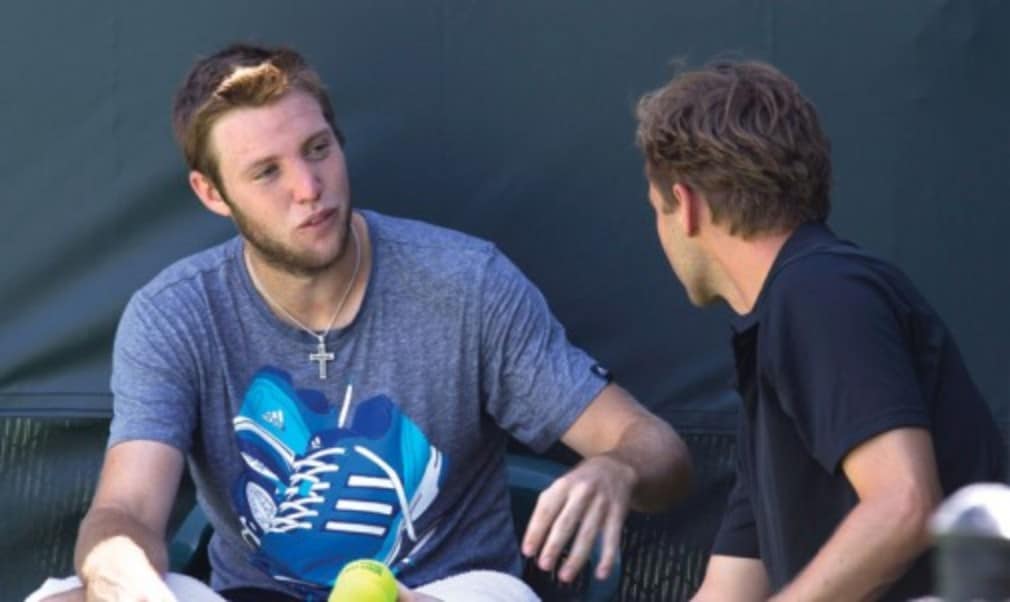
Tennis coach as sports psychologist
Originally published on 19/03/15
When I was a player it was so important for me that I had a coach who I could look up to who was always positive. I never really gave 100% when I travelled with someone who I felt didn’t fully support me. It’s so important to have somebody in your corner who has your back.
Every player is different. Some players need psyching up before a match while others need help staying calm. But it’s really important to always use positive language to keep encouraging your player in a way that they know you are behind them, even if they have a bad day at the office.
I’ve worked with players who didn’t give their all and that’s something I find tough to deal with. But it’s my job to use the right words to educate and encourage them and make them aware that they are responsible for themselves. They might have a team of people who want what is best for them, but during the match they are on their own, all alone out there in the arena like a bullfighter.
When I am sitting in a player’s box during a match I am very conscious of my body language all the time. The most important thing is to stay positive and always encourage them, and if you can’t do that, at least wear dark glasses!
I’ve had players look up to the box and give me a look as if to say, 'What am I doing wrong?' If a player gets close you want to say something constructive to them rather than just ‘bad luck’ or ‘well done’. Before the match you will have analysed the opponent’s game and talked about tactics so trigger words can help reinforce what you have said and help the player refocus.
In women’s tennis there is the opportunity for oncourt coaching during toilet breaks, medical timeouts and during the odd changeover. As a coach you have to be prepared for this eventuality at all times because you must have something constructive to offer.
When used properly, stats can be so advantageous. Players can be stubborn sometimes but having cold hard facts can help reinforce your point. If the stats are really bad I’m not sure it is helpful to show them to a player, but if there is something that really stands out, for example if the opponent always serves out wide at 15-30, then you can give them two or three things like this and it can be a big help.
Personally I’m not a big fan of on-court coaching. While it can really help a player, it’s not allowed at the Grand Slams when the stakes are higher. For example, during the US hard-court swing your player might have had your input during matches in the lead-up to the US Open in tournaments like Stanford, Toronto, Cincinnati and New Haven, and then she is all alone on the biggest stage at Flushing Meadows. If her opponent takes a medical timeout or a comfort break she is sat there alone with her thoughts. It’d be great to have somebody sat on your bench all the time like a captain during the Davis Cup or Fed Cup, but for one changeover I’m not sure how much difference it really makes.
A rain delay presents a greater opportunity to really make a difference, but sometimes it isn’t even about tactics or statistics. I was working with Thiemo de Bakker during the 2010 French Open and in the second round he was playing the No.32 seed Guillermo Garcia Lopez. I had to leave his match during the first set because Caroline Wozniacki was playing and none of my adidas colleagues were available. There must have been a miscommunication because Thiemo was not aware of the fact that I would not be there for the whole match.
When I left the match he was winning the first set but when I came back he had lost the second set and was struggling but fortunately there was a rain delay in the third. We didn’t talk about the match, we just had a frank conversation about the misunderstanding and he told me how upset he was that I had left. He was able to express his emotions and move on. It was a critical rain delay and an important conversation because he probably would have lost that match. I was able to make sure he channelled his energy into winning the match, which he did in four sets.
I like to read articles to help me learn more about psychology and mental strength because I think it makes me a better coach. I recently read a book called 'Crucial conversations: tools for talking when the stakes are high' which has helped me talk to players and their entourage.
In November I did a workshop to learn about how people tick. Everybody is different and some people can be really hard to read. Everybody requires a different approach and that is why it is so important as a coach or a physical trainer or an agent that you are open to new things and willing to learn. If you are continuously improving yourself you give your player the best chance to help them improve and to maximize their potential.
If I had to sum up my approach to coaching in one word, it would be commitment. That word worked for me as a player and it works now as a coach. Commit. You have to commit to your game plan, commit to your training or commit to your entire career. I say it a lot, but tennis is a job and if you aren’t dedicated then maybe you should be looking for another career.
This article originally featured in Volume 5 Issue 6. Subscribe to the magazine today or download tennishead on iTunes.


